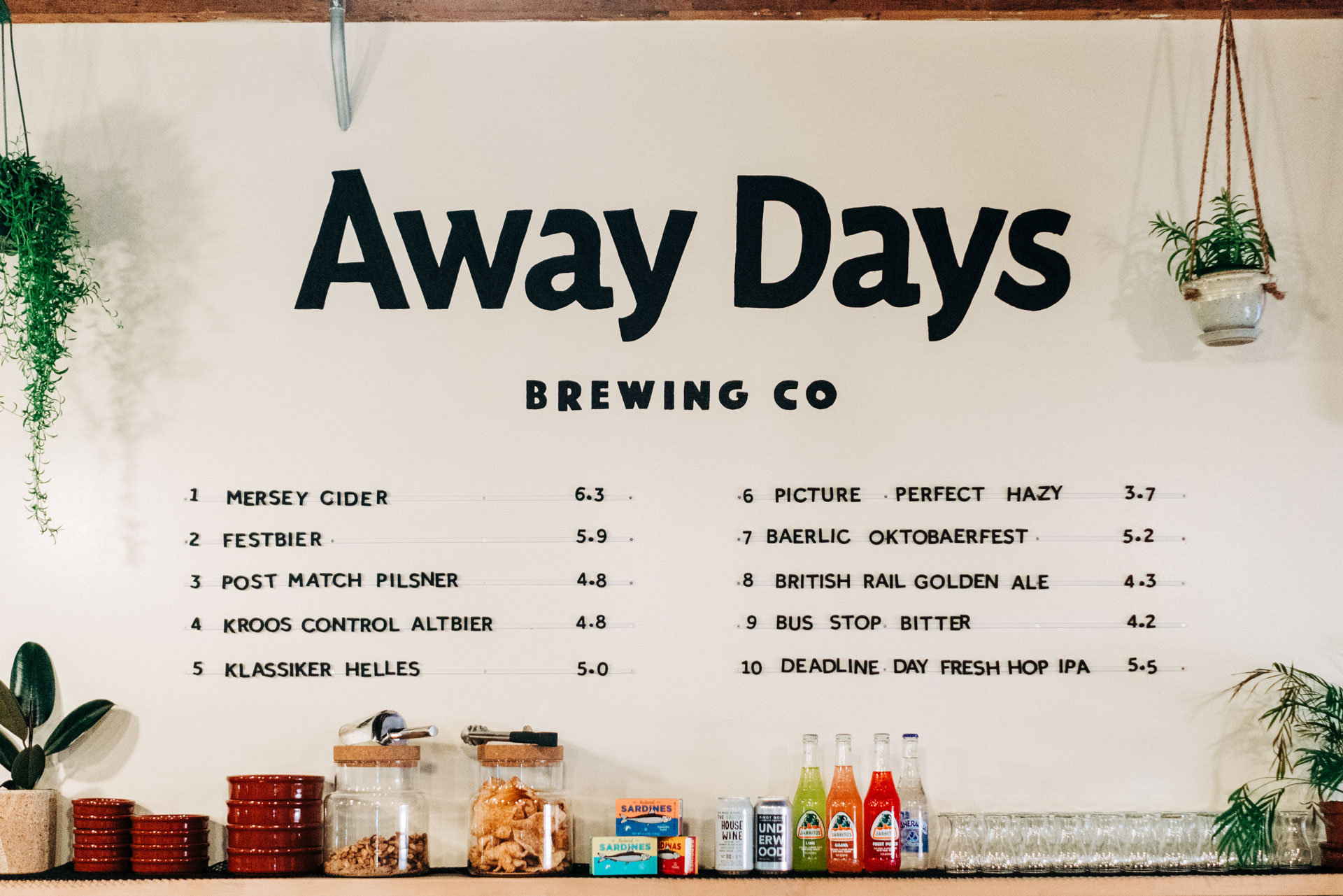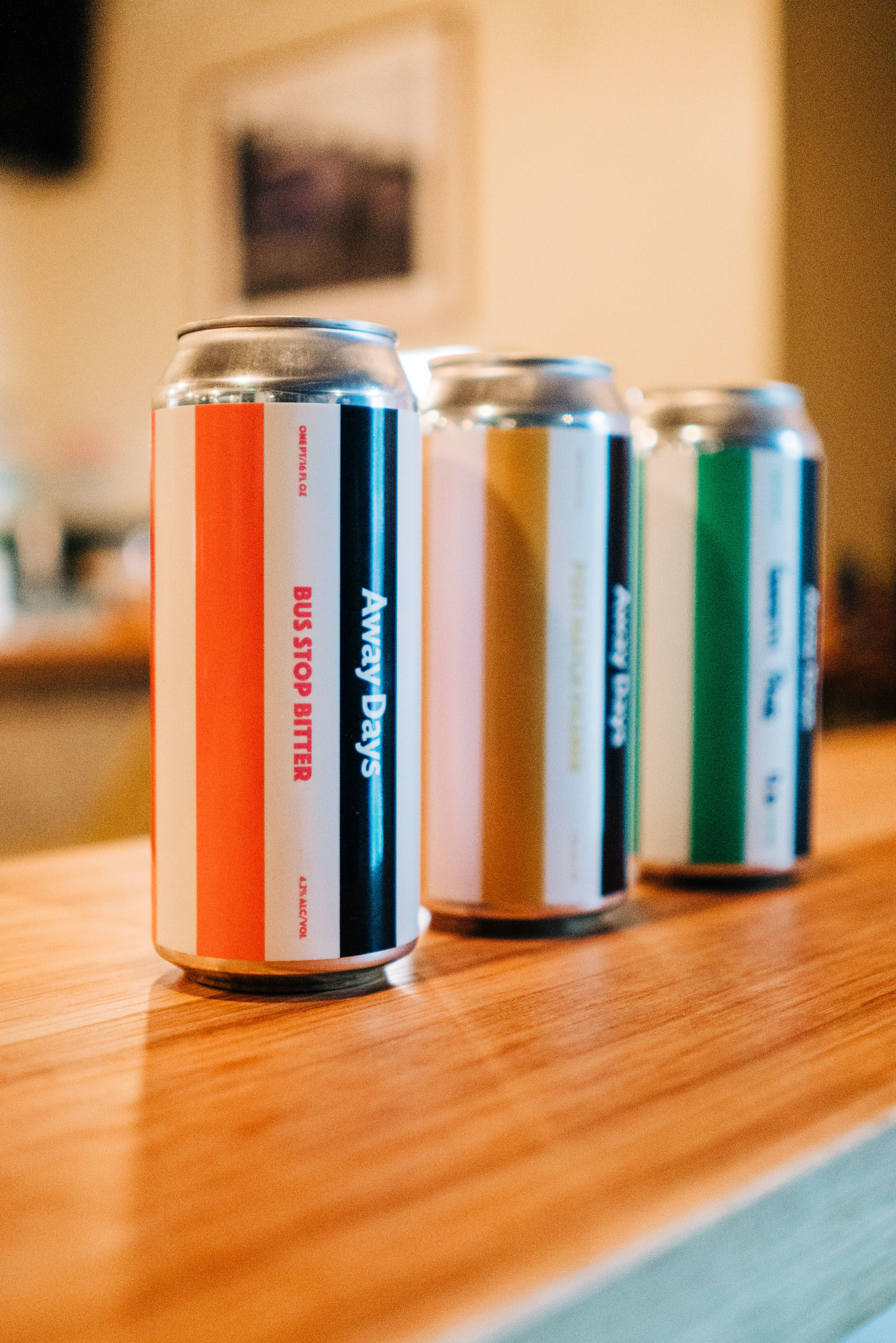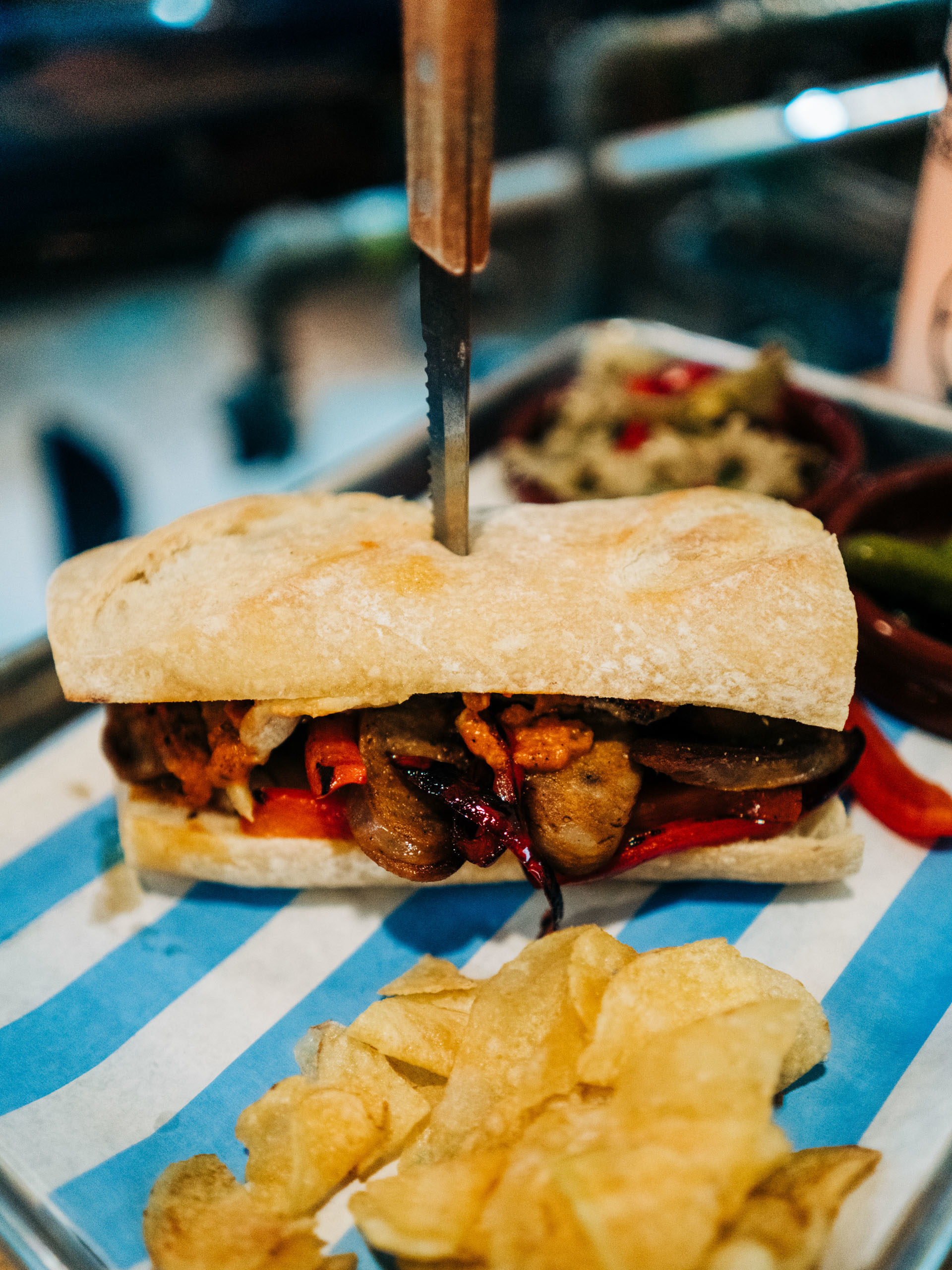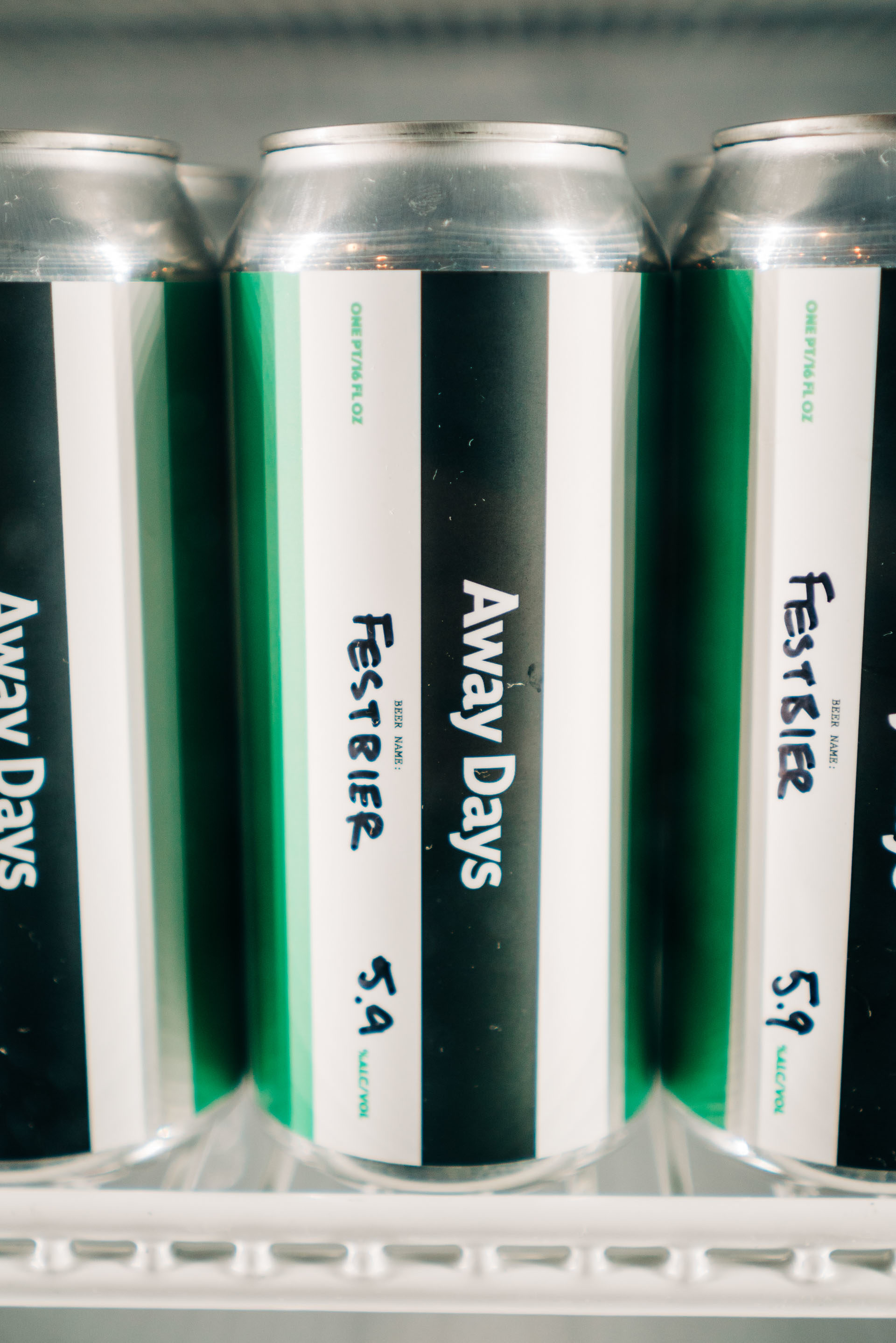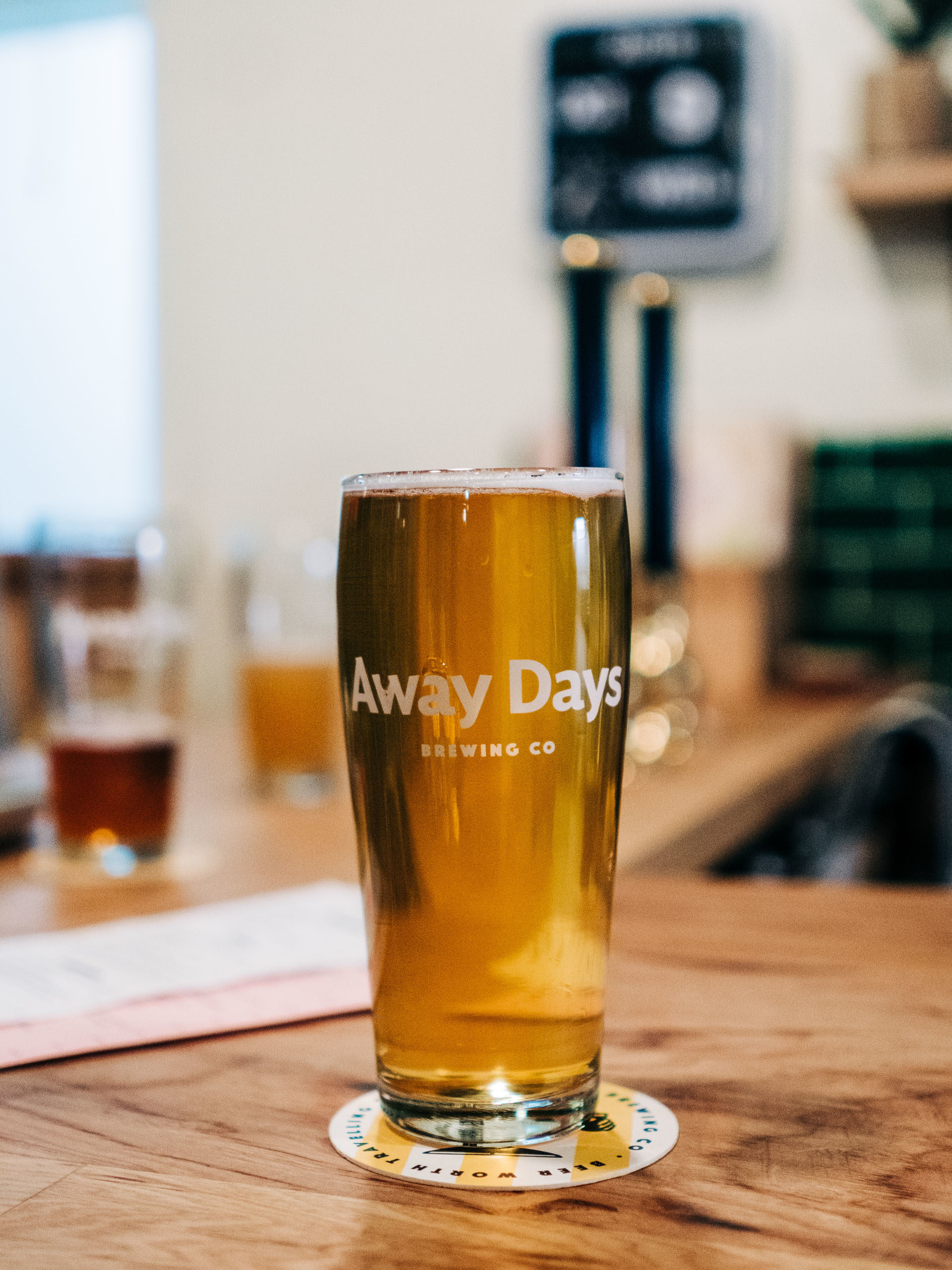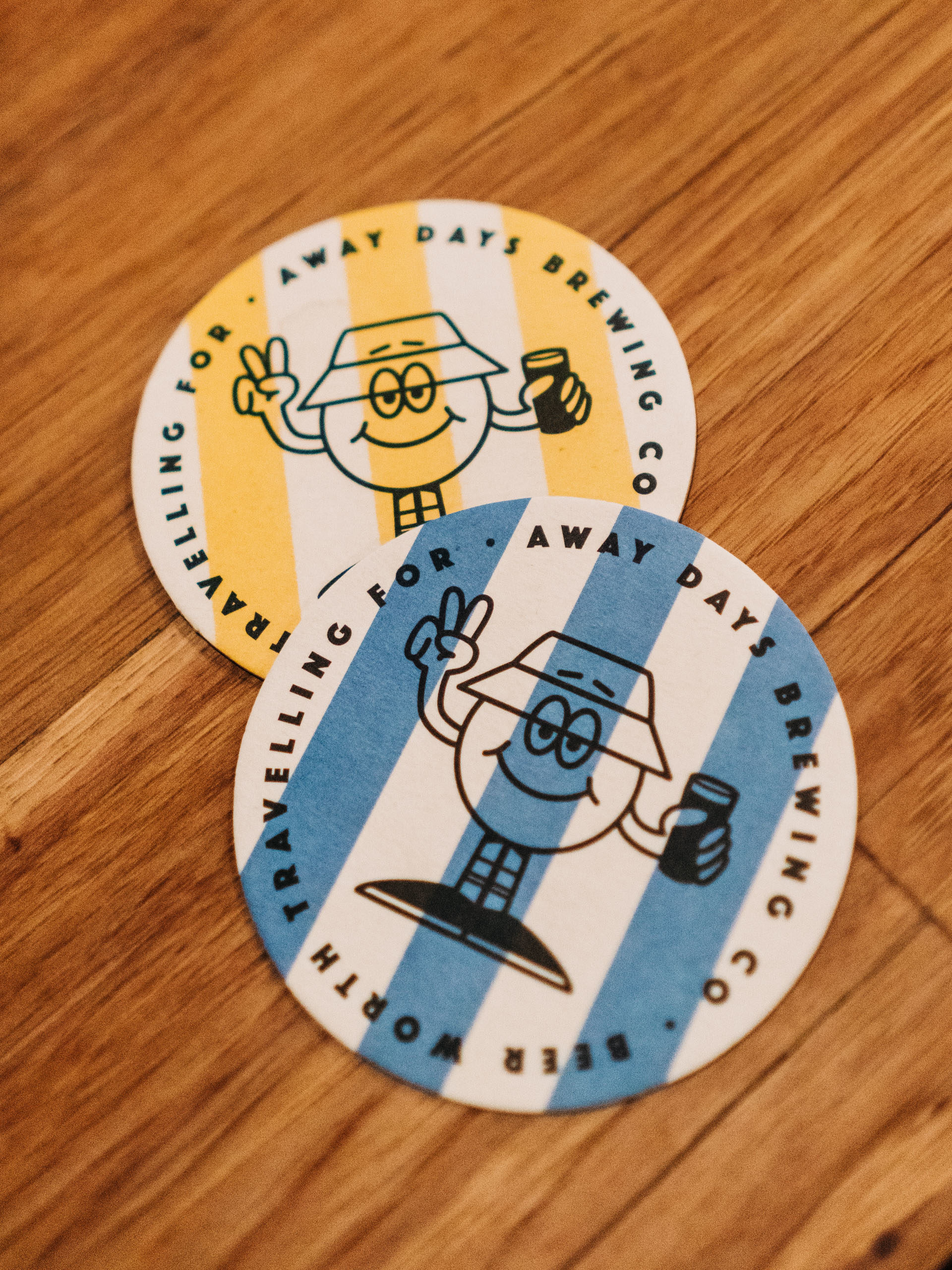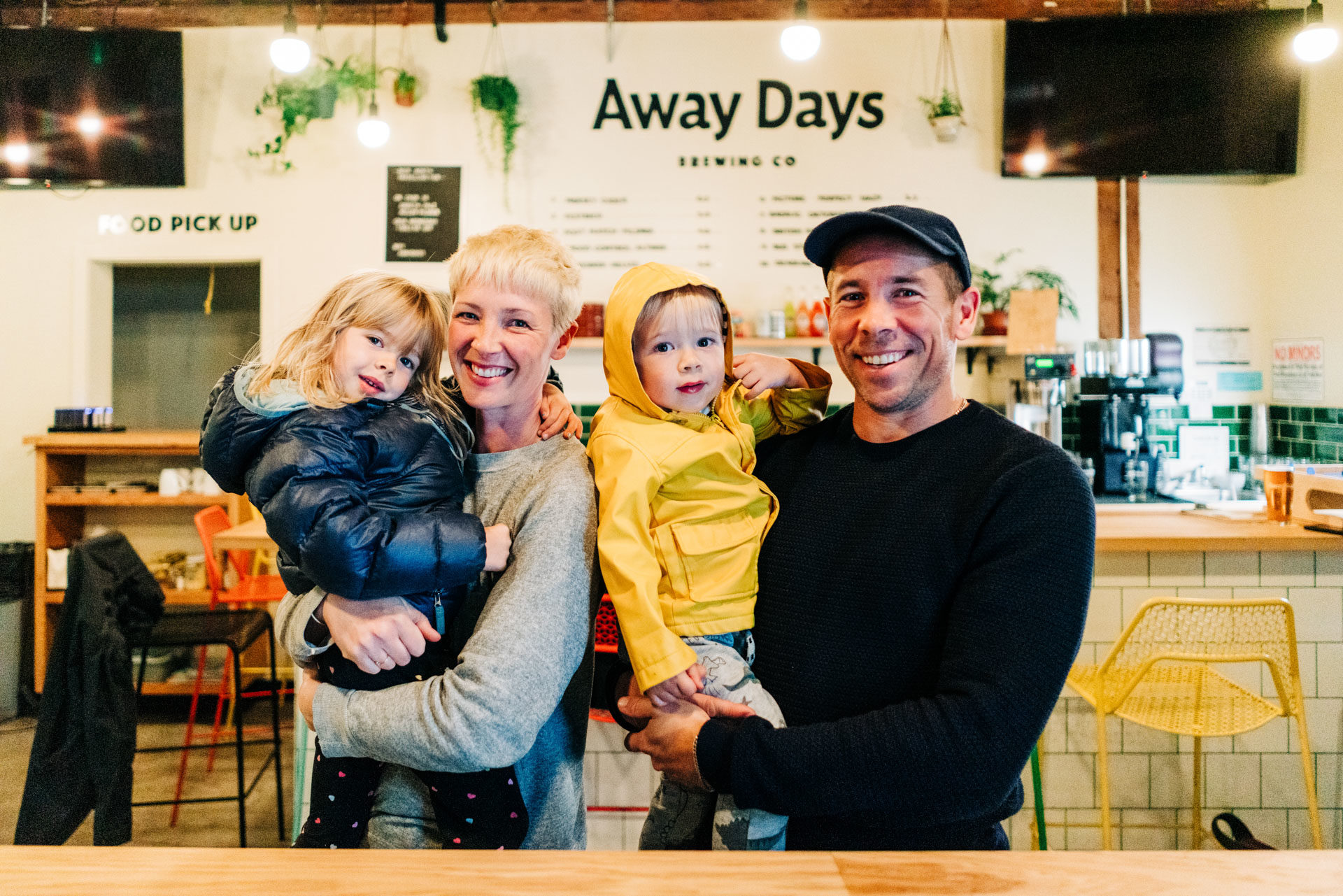Let’s talk about the Toffee Club first, how did that come to be?
(Pete)
It’s always been a dream of ours to own a bar, but maybe in retirement, like we’re gonna like finish up the corporate jobs and then move back to the UK or somewhere a bit more tropical, open up a bar and semi-retire. But it actually all kicked off when my brother Jack moved over to Portland and we asked him, “Okay, well what are you gonna do?”
We were brainstorming ideas about what he’s going to do in Portland. And then that snowballed into bringing the idea of owning a bar to life sooner than we thought. We were throwing around ideas of what this could be and I think we’d already built the deck—the concept of what it could be—before we even started seriously looking into it. We specifically thought about Portland. We were like, “what’s Portland missing?” There wasn’t really a proper pub, like an English pub. That kind of culture doesn’t really exist.
There were football bars, but there was an opportunity to combine pub and football culture together in an authentic way and bring that to Portland. So we looked at a bunch of different venues. And then we saw this, the current space, which was basically a warehouse, but it’s in a really cool, developing part of town. As soon as we saw this place, we were like, “This is it.”
(Niki)
We definitely saw a gap in the market as well for a more inclusive space to watch football. There are a ton of football bars in Portland. But as someone who loves the social side of football but didn’t grow up with a team, I would often be in these football pubs feeling quite out of place, or like I didn’t know enough. We wanted to create a space that anyone could come to whether you’ve grown up as a born-and-bred football fan or if it’s your first time watching; whether it’s men’s or women’s as well. The Thorns obviously have a huge following in Portland, but there are not many places that have given them a focus or a real-life place to shine. That’s been really important for us from the start.
So the pub, in a sense, is very traditional with the food, etc. but it does feel very modern. It is like a modern space with the soul of a pub.
(Pete)
That was our challenge. How do you create an English pub in a warehouse, an ex-strip club in Southeast Portland? How do you take that space and make it feel like a cozy, welcoming pub? That was definitely a design challenge when we started, and that space has evolved over time. We opened the pub with three pictures on the wall and two rugs and a few tables. It’s really grown over the last few years.
We first met you guys when the Toffee Club opened three and a half years ago. How has it evolved since then?
(Pete)
It’s interesting, we went back through the original concept and the deck, the original idea behind it. Now feels like, three and a half years in, we are getting to where we always wanted to be. It was definitely a struggle at first. I think it was a little bit of having the confidence to fully realize what we wanted to do, but also to convince other people who haven’t grown up with this culture to understand what you’re trying to do.
We knew that Portlanders love football. And they love beer. And a lot of them love English stuff. But the pub culture makes it a different concept to the sports bars that people are used to.
(Niki)
Another thing we always dreamt of is becoming the “Clubhouse”. So in England, each team has a clubhouse. And everyone goes to the clubhouse after matches. It’s the home team and the away team and both go and have a drink at the clubhouse.
And that, I feel, is something we have finally rallied around this year. We now have an over fifties team, over forties, over thirties, and first division men’s teams in our football “club”. We have an outdoor women’s team, an indoor women’s and coed outdoor teams. We also have an indoor futsal men’s team and we encourage them all to come back to the pub afterward. We give them a pitcher of beer and chips for free after their match, so we’re finally becoming that clubhouse space to our teams.
(Pete)
We didn’t have the football angle dialed up when we first opened the Toffee Club. It was more of an English pub that shows football. I’d say that’s the biggest evolution that has happened, is that we’ve got the football dial turned way up now. At the same time, we don’t want to alienate the people who just want to come in for some nice food and a pint, a chat, a quiz, whatever. Those people are looking for the English pub environment which is still very much at the core of what we do.
So you built a pub. You’ve started a league with it sounds like over 30 teams. And then you decide, “okay, let’s build a brewery.” How did that happen?
(Niki)
This was a brewery before, called Scout Beer. They actually opened around the same time as us. They were doing that build-out at the same time as we were. And they, for one reason or another, decided to close here at the end of last year. So they contacted us at the beginning of November and asked if we wanted to take over the space.
It had been something we’d always talked about very much in theory. And at first I was just like, “no, no, a pub and two kids is plenty.” To take over a brewery sounded ridiculous. Then we started talking about it as a team and actually realized the opportunity of starting a very different business over here, in the same proximity, bringing in a different kind of clientele to this area, using economies of scale with our team and our kitchen, and actually building a brand that had real growth potential was an interesting opportunity.
We started negotiating and we weren’t 100% set on the idea, by any means, but as soon as we start negotiating, we realized we could move in here and have the space set up as a turnkey operation.
So then the fun project was starting to build this brand and make it very different from what the Toffee Club is. People will know it is the same owner if they dig a little deeper, but we didn’t want and didn’t need a bigger Toffee Club. So the goal was to create something very different that will bring certain kind of guest to the brewery, who also will appreciate the Toffee Club. And the other way around.
(Pete)
People get it. What separates them is the idea that Toffee Club is this English football pub and then Away Days is like your European away day, your trip. You are going away to watch your game for the weekend in Barcelona, Amsterdam, Porto wherever it is in Europe, and this space represents that.
The Toffee Club is going to be kind of constrained in a way. It’s always going to be rooted as an English pub in Portland. Whereas Away Days, we can literally do anything with this brand. It’s going to be interesting.
(Niki)
Toffee club is much like less about the brand and more about the community, whereas here we have real potential here with the brand, you know? So it’s really fun to think about that. We’re suddenly selling a product rather than an experience. The beer has to be the first thing we’re selling.
And this is something that you can potentially do to scale.
(Pete)
Yeah, for sure.
(Niki)
But we don’t need two Toffee Clubs.
(Pete)
But that will always be at the center of it. However big Away Days gets it just kicks off from the pub. Like if we have a massive distribution of Away Days one day, it all comes back to the Toffee Club, That’s the original foundation and spot where the culture was created.
So obviously starting a pub is quite a big undertaking. In my mind starting a brewery is even a bigger undertaking. What have been some of your biggest challenges starting this project?
(Niki)
Opening a second business with two kids while running a business and Pete full time at Nike has been just a whole new level. We signed the lease agreement [for the brewery] in January, we got into the space in February, and we were open the first week in June just before the Women’s World Cup, which was a month of madness, anyway. So, yeah, it’s been a crazy nine months. But we have learned so much. We’re lucky to have an incredible team. Our pivotal moment was hiring our Brewer, Marshall. He has really taken our vision of what we wanted the product to be and is honestly executing above what we ever could have hoped for.
(Pete)
That was our biggest fear or concern. We like beer, and Jack, my brother, is educated in beer, but we have no experience in brewing or the production industry. But this is a beer town and we’re coming in with a new point of view. All beer in Portland now is good. It is really good. So we’ve got to be at least really good. But Marshall, our brewer, is so, so good.
You mentioned point of view. So when you think about Away Days Beer, what is that point of view?
(Niki)
Lower ABVs, alongside the European styles, are a big thing for us. A lot of people agree that beer just went way too hoppy, too heavy, and too boozy. It was almost like you had to endure a pint rather than enjoy it. Lower ABVs is a trend back home, but it is always something that’s always interested us. Just a more sessionable drink. We love a day drink so we want to be able to have a few pints and still feel okay rather than having one that will knock your head off.
(Pete)
You know the lower ABV is a trend in New York and in Europe as well. Well, it’s always been in New York. People want to drink more over time and hang out with friends. And that’s like our culture so why shouldn’t we bring that up to Portland. And we combine that with the West Coast flavor.
So you guys have been opened since June, officially since August. Are you guys already starting to see where you want this business to go?
(Pete)
When we started Toffee Club we really had to figure it out as we went. Whereas Away Days has been a lot more strategic. We’re taking the learning from three and half years of Toffee Club into this space. The space is great. People love the beer. The branding is on point. But the most exciting part of it is getting the beer out there to the world. That is the new and exciting thing. We are all about new challenges. That is what keeps us going, keeps us interested.
(Niki)
We did this event for Octoberfest and we were packed from start to finish. It was a really good moment. We had only been existing online for two months and we were doing an event. I was thinking, “Is anyone actually going to turn up?”
We have the infrastructure now to get our name out there. We can use Toffee Club as a starting point but most of the people who came out were just from the beer community, the Portland community.
One thing we do know is that our growth has the potential to be a lot faster than it was at Toffee Club. We definitely have to have the confidence to be more aggressive here. At the Toffee Club we relied on word-of-mouth at first. Since then we have learned a lot about how to market, how to promote, how to connect, how to get people to know about us.
We are really impressed with all that your family has been able to accomplish to continue to take chances on creating new things that resonate with and foster community. You have really been able to build a community with the Toffee Club and even now with Aways Days, we can tell it is more than just about selling something. There is a deep connection there to family, to Portland and to the football-loving people here.
(Pete)
You know we talk about the Toffee Club like it’s a community. And that’s been the thing that has kept us going. That’s been the most satisfying part of this. Considering the amount of effort we put into this, we could do something else that would be a lot easier and make money (laughs). These things take years as you know. It’s about doing something you’re passionate about and other people will follow, hopefully.
So you have to be really passionate about the thing that you are doing and we have created something that we really are into.
That definitely comes across. The Toffee Club and Away Days are authentic to you guys. It seems like a place where you guys want to be, hang out, and have a pint with your friends. That authenticity shines through and I think that is part of what attracts so many people to you and your brand.
(Niki)
We love it. But we are still figuring it out every day. It’s not like a formula…Our operations have become more streamlined, but in terms of a brand, a business, and a community—how do we continue to elevate and to grow?
I always like to ask this question to wrap things up: if you could go back a year ago, to before you started Away Days what would be one piece of advice you would give yourselves?
(Niki)
I would go back even further and go back to opening Toffee Club. This is actually a conversation I had with a friend a while ago. We’ve spoken about it a few times. She asked, “if you could back to when you were concepting Toffee Club, what would you change?” I told her, “if you could have told me how much money and how much time would go into it, how many weekends wouldn’t have had as a family, how many tears, how many sleepless nights, how many arguments,” I would have said, “definitely not. I’ll keep freelancing with my nice hourly rate and live a comfortable life.” Then she said, “you’ve only talked about the bad things, but what the community that you’ve built and the experiences that you are building for people? What about all you have learned? What about what it has done and is doing for your family?” And I was like, “you’re right. I’d do it again.”
That was a really good moment. When she asked me I went right into the stressful things, In 20 years time we will look back on this and say, “wow!” Or we’ll be like, “We were crazy, what were we doing? But it was amazing. We built something.”
(Pete)
I think if I was to tell myself anything. If I went back three years ago. We could have gone for it more at the start. To be more confident in ourselves and in the vision.

